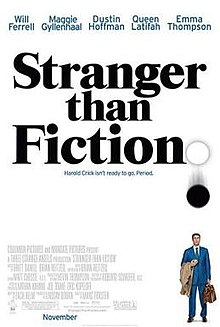
It is what it is. In 1975 mob hitman Frank Sheeran (Robert DeNiro) and his boss Russell Bufalino (Joe Pesci) and their wives are on an east-west roadtrip, their ultimate destination Detroit for the wedding of Russell’s niece. An elderly Sheeran tells the story of their association as a meet-cute when he was driving a meat truck in the 1950s and his rise through the ranks, his appointment to a Teamster position under Jimmy Hoffa (Al Pacino) the union supremo with deep Mafia ties. It becomes apparent that there is an ulterior motive to the journey and their role in America’s evolution particularly with regard to the Kennedy family is traced against a series of hits Sheeran carries out that reverberate through US history… What kind of man makes a call like that. Not so much Goodfellas as Oldfellas, a ruminative journey through midcentury America via the prism of a violent hitman who allegedly befriended and later murdered infamous Teamsters boss Jimmy Hoffa. This is toned-down Scorsese, with muted colours to match the readjusted and very mature framing of Mafia doings in terms of the impact it has on family, chiefly Sheeran’s sensitive daughter Peggy (played by Anna Paquin as an adult) whose mostly silent presence functions as the story’s moral centre: her horror of Bufalino is a constant reprimand. Steven (Schindler’s List, Gangs of New York) Zaillian’s adaptation of Charles Brandt’s book I Heard You Paint Houses is not for the fainthearted: its overlength is sustained mainly by performance with a powerhouse set of principals (plus Harvey Keitel, Ray Romano, Bobby Cannavale et al) battling against a lot of unmemorable and somewhat repetitive dialogue (but when it’s good, it’s great), under-dramatised setpieces and a fatally bloated midsection (as in life, so in narrative), much of which is spent in courtrooms. Every time there’s a lull in the action someone needs Frank to off the source of their discontent and sometimes this is handled with straightforward exposition, sometimes in a montage of Frank disposing gun after gun off a bridge. That’s the story punctuation in this flashback within a flashback. Mostly however the issue is DeNiro’s dull and wearying voiceover. This is not the funny jive kick of Ray Liotta in the aforementioned 1990 classic, it’s a man utterly comfortable in his killer’s skin who doesn’t defend himself because it’s who he is and he is not given to introspection, a flaw in the amoral anchoring perspective. If we’re seeing it, we don’t need to be told too. The de-ageing effect is jarring because we don’t see the DeNiro of Mean Streets, rather a jowly preternaturally middle-aged man who shuffles in an old man’s gait with no visible difference between how he looks in 1950 and 1975. While Pesci is calm and chillingly content in his own position as a capo, it’s Pacino (in his first collaboration with Scorsese) who lifts the mood and fills the air with punchy, positive ions, giving the movie a much-needed burst of energy. But even he seems to be circling the wagons around his own self-satisfied persona as the same story/work-life issues repeatedly arise. It’s a big movie about nasty men who (perhaps) played a huge role in the shaping of their country and the hierarchies of cultures and ethnicities are regularly invoked in a tale which may or may not be true. There are some potentially amusing gatherings of men in black suits at family events. But funny they ain’t. It’s sad perhaps that Scorsese didn’t make this for cinema and after three weeks on limited release it is fated for eternity on a streaming service: a sign of the times and perhaps the swansong of a major filmmaker at the end of the 2010s. The nail in the coffin of an era? After this we might be asking not just who killed Jimmy Hoffa but who killed the mob movie. Late Scorsese, in more ways than one. They can whack the President, they can whack the president of the union








